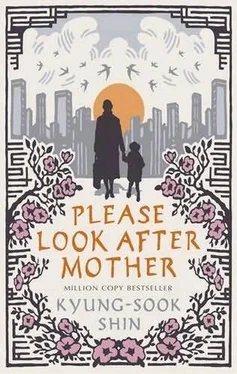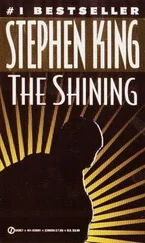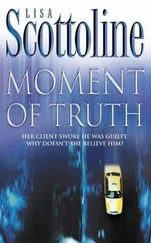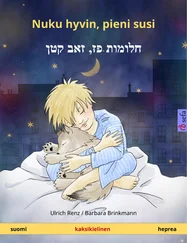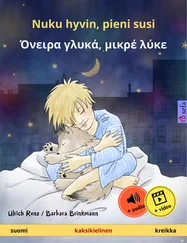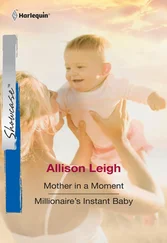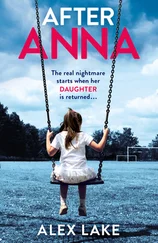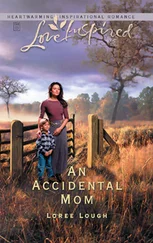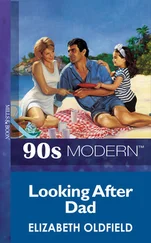“So I’ll leave it at the shop!”
You raced down the avenue-you, a man I’d just met, carrying my children’s food. I took off the towel wrapped around my head and slapped the dust off my pants and watched you and your bicycle disappear. Dust rose and clouded you and your bicycle, so I rubbed my eyes and watched you get smaller. I felt relieved, the weight on my head gone. I walked along the avenue, swinging my arms lightly. A pleasant breeze passed through my clothes. When was the last time I’d walked alone, with nothing in my hands, on my head, or on my back? I looked up at the birds flying in the dusky sky, hummed a song I used to sing with my mother when I was young, and headed to the shop. I looked for the basin from far away. I looked at the door of the shop as I approached it, but the basin that should have been by the door wasn’t there. Suddenly my heart started beating fast. I walked faster. I was afraid to ask the woman at the shop, “Did anyone leave a basin for me?” If you had, I would have seen it already, but I couldn’t find it. My towel in my hand, I ran toward the shopkeeper, who stared at me, wondering what was going on. I realized it only then: you had stolen my children’s dinner from me. Tears filled my eyes. Why did I give my basin to a man I’d never seen before, trusting you? What was I thinking? Why did I do that? I can still feel that dread, when my momentary nervousness at seeing your bicycle disappear became reality. I couldn’t go home empty-handed like that. I had to find that basin with flour, no matter what. I remembered the scraping noise I’d heard that morning when I scooped up grain in the shed for breakfast. I couldn’t give up when I knew there was enough flour in that basin for ten days’ worth of meals. I just kept walking, looking for you and your bicycle, though you must have sped past the shop. I went on and on, asking whoever I met whether they’d seen someone who looked like you. Your identity was revealed quickly. That was how careless you were. You didn’t even live far away. When I found out that you lived in the village that had a tile-roofed house, about five ri past our village, before the road reached town, I started running. I would be able to bring back all of the flour in the basin if I reached you before you used it.
When I discovered your bicycle in front of a run-down house at the foot of a hill between paddies, down the road from the entrance to your village, I ran into your house, screaming, “Ahhhh!” And then I saw it all. Your elderly mother sitting on the old porch, with her sunken eyes. Your three-year-old sucking on his finger. And your wife in the middle of a difficult birth. I’d come to retrieve the basin you’d stolen from me. Instead, I grabbed a pot off the wall in the dark and narrow kitchen. I heated water in it. I pushed you aside, since you didn’t know what to do and were just hovering next to your wife, and I grabbed her hand. I’d never met her before, but I shouted at her, “Push! Push harder!” I don’t know how much time passed until we heard the baby’s cry. Your house didn’t have a single strand of seaweed to make seaweed soup for your wife. Your elderly mother was blind and seemed already to be on her way over to the other world. I delivered the baby and scooped some flour from my basin and made dough for dough-flake soup and ladled it into a few bowls and put some broth into the room where the baby’s mother was. How many decades ago was it when I put the basin back on my head and came home? Is that man next to you the baby who was born that day? He’s sponging your hand. He gets you to turn over and sponges your back. It’s been a long time. Your taut neck is now wrinkly. Your thick eyebrows are no longer, and I don’t recognize your mouth. Instead of the doctor, it is now your son who says, “Father! What’s your name? Do you know what your name is?”
“Park So-nyo.”
No, that’s my name.
“Who’s Park So-nyo, Father?”
I’m curious about that, too. What am I to you? Who am I to you?
Seven or eight days after I met you, your situation weighing on my mind, I took a strand of seaweed and stopped by your house, but only the newborn was there, not your wife. You told me that your wife had suffered from three days of high fever after the birth, and finally left this world; she was so malnourished that she couldn’t make it through childbirth. Your blind mother was sitting on the old porch, and it wasn’t clear whether she knew what was going on. And the three-year-old. I suppose that man by your sickbed could be the three-year-old, not the baby.
I don’t know who I was to you, but you were my lifelong friend. Who would have known that we would be friends all these years? The first time we met, you made me feel so despondent by stealing the basin with the flour I needed to feed my children. Our children wouldn’t understand us. It would be easier for them to understand that hundreds of thousands of people died in the war than to understand you and me.
Even though I knew that your wife was gone, I couldn’t just leave, so I soaked in water the seaweed I’d brought. I made dough from the remaining flour I’d given you the other day and made dough-flake soup with seaweed; I put a bowl for each person on the table and was about to leave, but stopped to put the newborn to my breast. It was a time when I didn’t have enough milk for my own daughter. You were going around the village with the baby and feeding him donated breast milk. Life is sometimes amazingly fragile, but some lives are frighteningly strong. My elder daughter says that when you mow down weeds with a tractor, the weeds cling to the wheels of the tractor and spread seeds, to breed even at the moment they’re being cut. Your baby latched on ferociously. He suckled so hard that I felt I would be sucked in, so I slapped the baby’s bottom, which still had traces of redness from his birth. When that didn’t work, I had to force him off. A baby who’s lost its mother as soon as it’s born intuitively doesn’t want to let go when it’s near a nipple. I laid the baby down and turned to go, and you asked me what my name was. You were the first person since I got married to ask me my name. Suddenly shy, I ducked my head.
“Park So-nyo.”
You laughed then. I don’t know why I did what I did next, just that I wanted to get you to laugh one more time. Even though you didn’t ask, I told you that my older sister’s name was Tae-nyo, which means “big girl.” Our names-Little Girl and Big Girl. You laughed again. Then you said that your name was Eun-gyu and your elder brother was Kum-gyu. That your father gave you names containing the words “silver” and “gold,” with the hope that you would earn money and live well. That he called you Silver Coffer and your brother Gold Coffer. That, perhaps because of that, your brother, Gold Coffer, lived a tiny bit better than you, Silver Coffer. That time I laughed. You laughed, watching me laugh. Then or now, you look best when you’re laughing. So don’t frown like that in front of the doctor; smile. A smile doesn’t cost you any money.
· · ·
Until your baby was three weeks old, I went to your house once a day and let the baby suckle. Sometimes it was early morning, sometimes in the middle of the night. Could that have been a burden for you? That was all I did for you, but for thirty years after that, I went to you whenever I hit a difficult patch. I think I started to go to you after what happened to Kyun. Because I just wanted to die. Because I thought it would be better to die. Everyone else made things difficult for me; only you didn’t ask me anything. You told me that any wound healed as time passed. That I shouldn’t think about anything, just calmly do what I was supposed to do. If you hadn’t been there I don’t know what would have happened to me; I was out of my mind with grief. You were the one who buried my fourth child, the stillborn, in the hills. Now that I think about it, did you move to Komso because I was too much for you? You weren’t someone who was meant to live on the coast or work as a fisherman. You were someone who tilled the earth and planted seeds. You were someone who didn’t have land of his own, and so tilled someone else’s. I should have realized, when you went to Komso, that you left because it was hard for you to put up with me. I see that I was a terrible person to you.
Читать дальше
